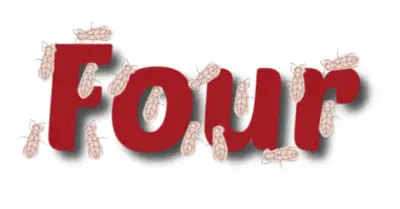Four Reasons to Appreciate Termites
 Let’s be honest—no one outside the pest control business likes termites. Those of us in the industry? We don’t mind a good termite swarm, as long as it’s not in our own or our customers’ homes. But termites do serve a purpose in nature. Without them, along with fungi and other wood-destroying organisms, forests would be cluttered with fallen trees, making those peaceful walks in the woods impossible.
Let’s be honest—no one outside the pest control business likes termites. Those of us in the industry? We don’t mind a good termite swarm, as long as it’s not in our own or our customers’ homes. But termites do serve a purpose in nature. Without them, along with fungi and other wood-destroying organisms, forests would be cluttered with fallen trees, making those peaceful walks in the woods impossible.
Believe it or not, there are other reasons to respect termites.
They’re Team Players
Give a termite a dose of Termidor, and not only will it ingest it—it will generously share it with dozens of family members before it keels over. This is known as the transfer effect.
A termite colony consists of three castes:
- Workers chew the wood.
- Soldiers defend the colony with their oversized mandibles, which are great for fighting but useless for eating—so workers have to feed them.
- Reproductives, including the queen, do what their name implies. The queen, who can live up to 30 years, doesn’t move, doesn’t bathe, and certainly doesn’t cook. Once again, the workers step in, feeding and grooming her.
The takeaway? Termites share everything. In fact, workers should be on the pest control industry’s payroll—they’re the ones delivering the final blow. A termite tech doesn’t even have to spray the termites directly. As long as the treatment is nearby, the workers will tunnel right through the wood to reach it.
Their Offspring Aren’t a Problem
Fumigation kills everything inside a home—except for insect eggs. Some homeowners see tenting as an opportunity to kill not just termites, but also rats, roaches, and whatever else might be lurking. The problem? Unlike termites, most pests leave behind eggs that will hatch after the fumigation is over.
Cockroaches, for example, will be back soon unless follow-up treatments are applied. Rats? They’ll all be dead, but you won’t know where they decided to take their final breath—leading to some unpleasant surprises in the walls.
Termites, however, don’t cause these problems. Their eggs may hatch, but baby termites can’t survive without their parents. Why? Because they aren’t born with the ability to digest wood. They need to ingest tiny protozoans from adult termites to develop that ability. Without their parents, they starve.
They’re Showy
Subterranean termites could have remained completely hidden inside walls, quietly destroying homes. But instead, they had to show off. Rather than staying discreet, they build intricate mud tubes—tiny termite highways—for everyone to see. Thanks to these structures, they’re much easier to detect and treat.
They’re Clean Freaks
If you crack open a drywood termite colony, you’ll find an impressively clean space. The smooth tunnels resemble wind-sculpted rock formations, like those at Arizona’s Vermilion Cliffs National Monument. Termites are so obsessed with cleanliness that they actively push their droppings out of their colonies—essentially marking the exact spot where they can be treated.
Final Thoughts
So, termites aren’t all bad. Try telling that to someone who just experienced a swarm or paid $2,500 to tent their home.
If you think you have termites, contact California Termite today. Our inspections are thorough—and free.
